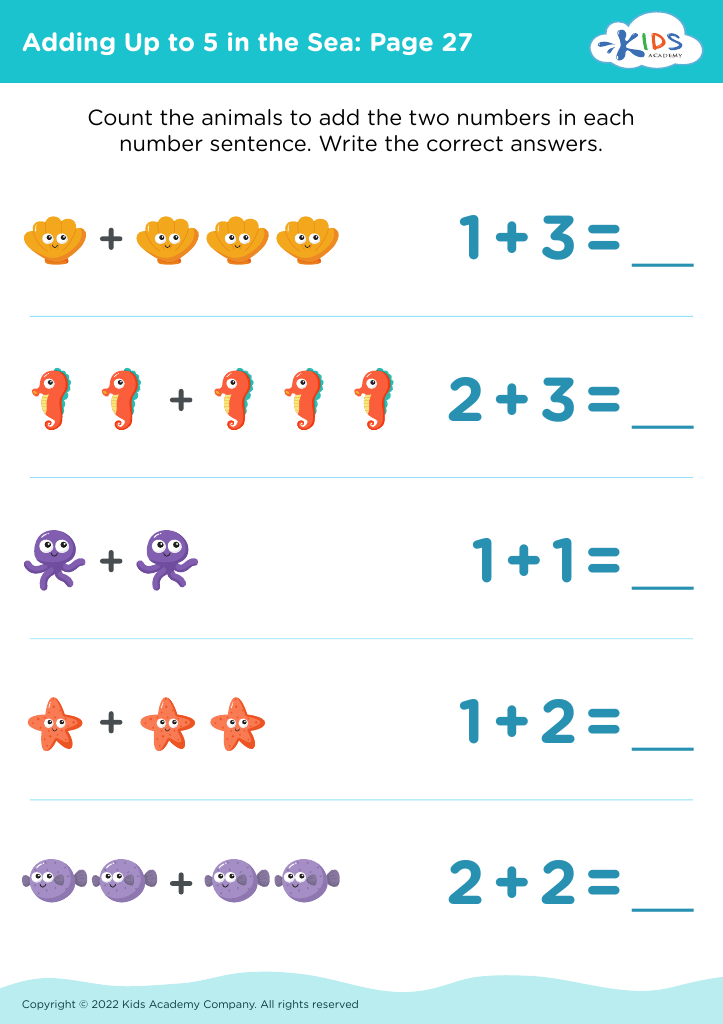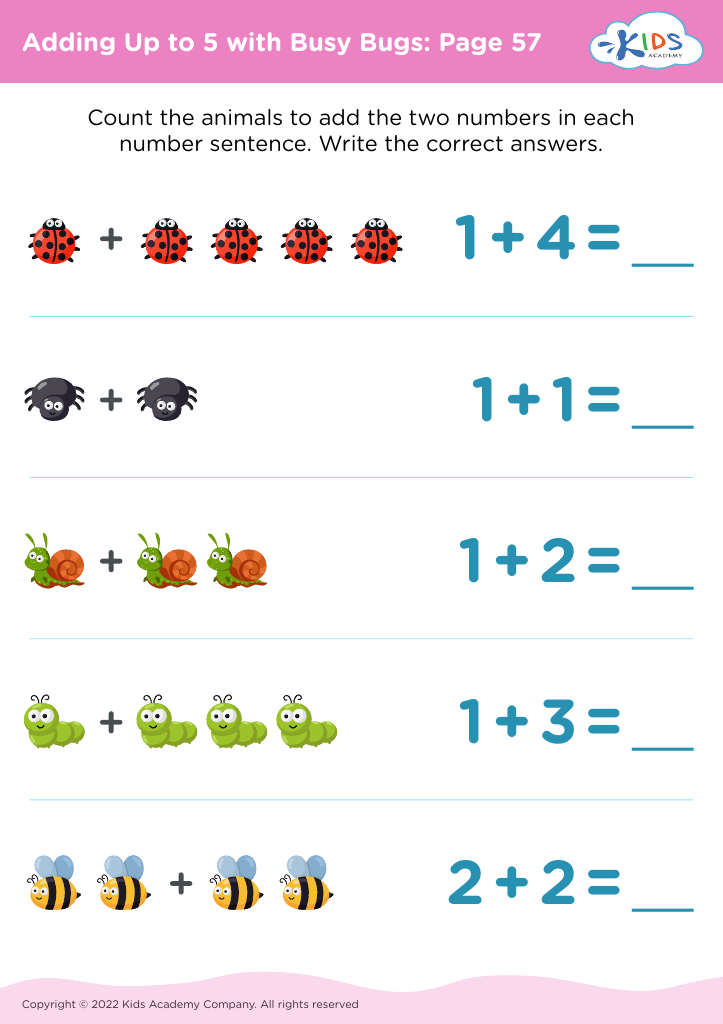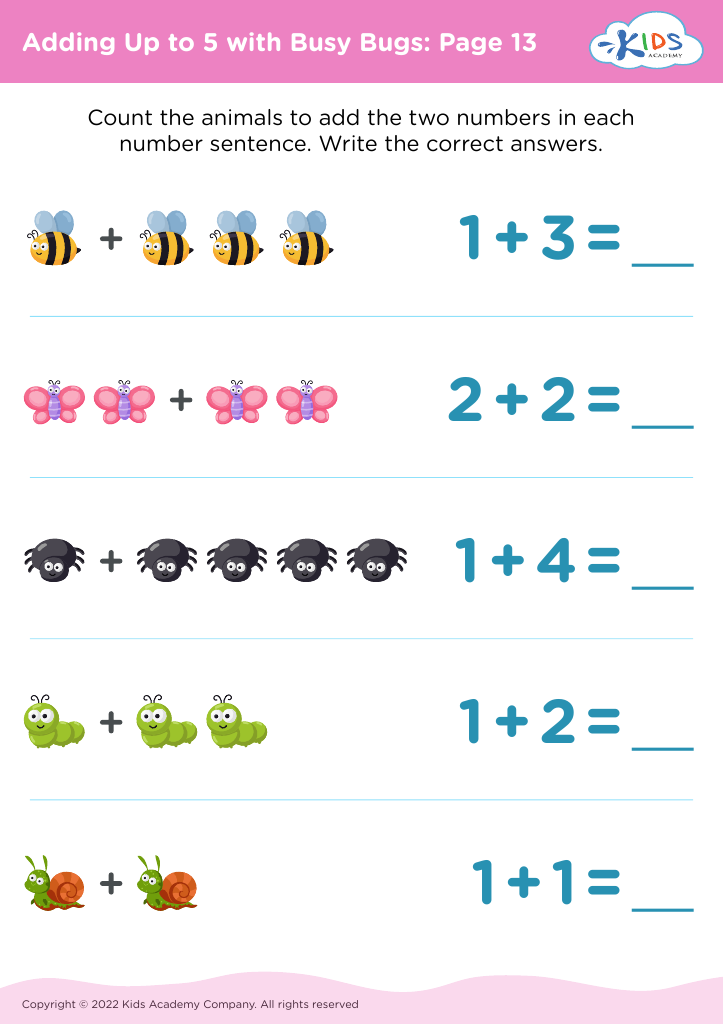Understanding numbers Addition Worksheets for Ages 4-5
3 filtered results
-
From - To
Boost your child's early math skills with our "Understanding Numbers Addition Worksheets for Ages 4-5." These engaging, printable worksheets are designed to help young learners grasp the basics of addition in a fun and interactive way. Packed with colorful images and simple addition problems, each worksheet promotes number recognition, counting skills, and the development of fine motor skills. Whether for classroom use or at-home practice, our worksheets provide a solid foundation for future math success. Unlock your child's potential and make learning addition an exciting adventure with Kids Academy's expertly crafted resources tailored for early learners.
Understanding numbers and basic addition at ages 4-5 is essential as it lays the foundation for future mathematical learning. At this age, children are naturally curious and capable of absorbing concepts through play and practical activities. Engaging with numbers and addition helps to develop their numerical thinking, which is not only fundamental for doing well in math later but also critical in fostering problem-solving skills and logical reasoning.
Early exposure to numbers and addition strengthens cognitive abilities that are necessary for a child’s overall intellectual development. For example, counting objects and understanding basic addition helps children grasp the concept of quantity, comparison, and even the idea of zero as a number. These early arithmetic skills influence a child’s ability to understand and manipulate numbers as they progress through school.
Additionally, engaging with numbers enhances memory and attention span, as kids must remember the numbers and steps in problems. It boosts their confidence and independence because mastering these concepts at an early age empowers them to tackle more complex problems later on.
For parents and teachers, fostering an interest in numbers also creates opportunities for bonding and positive interactions through games and activities. By nurturing these skills early, we prepare children for academic success and everyday activities involving math, paving the way for a well-rounded, confident individual.



















